“I felt I had a real calling”
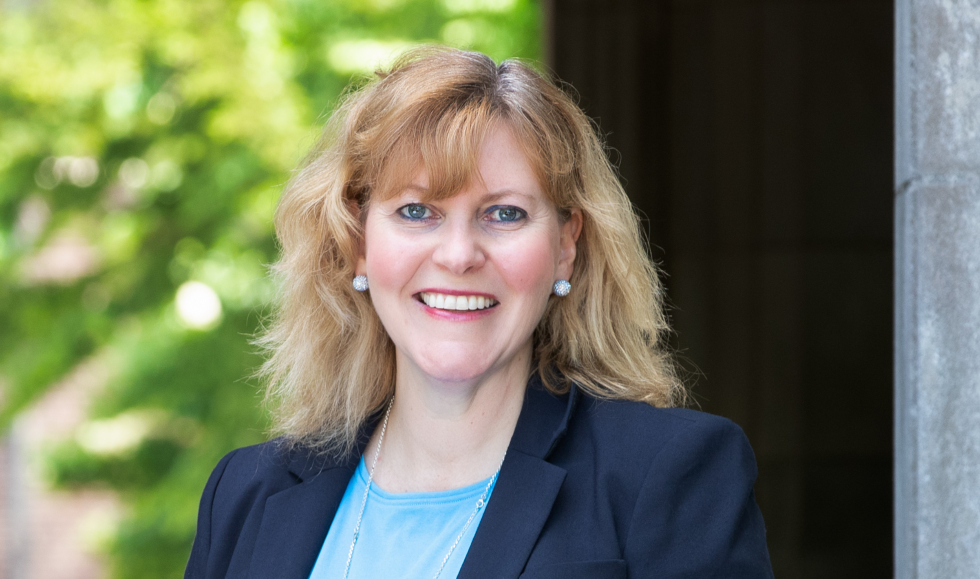
Photo by Georgia Kirkos
So what exactly does a provost do, anyway?
“That’s the best kept secret on campus,” laughs McMaster’s new provost Susan Tighe, who started her role on July 1. “Essentially, the provost is the chief academic officer as well as the chief budget officer. They’re also a champion for the academy, and for new initiatives in transforming the way we teach, learn and support students.”
There’s a person behind the position, too.
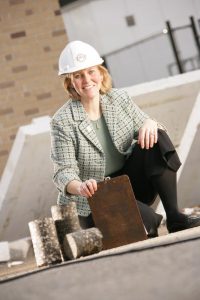
A civil engineer, Tighe was previously the deputy provost at the University of Waterloo and had a significant research career as a professor and Canada Research Chair, gaining national and international recognition for her contributions to the development, design and management of sustainable concrete and asphalt.
Three months into her job, we sat down with Tighe to learn a little about McMaster’s new provost: her vision for McMaster, what inspired her to move into administration following a significant career in research, and what it’s been like helping to lead a university in the middle of a pandemic.
What drew you to the role and to McMaster?
I’ve always had a great respect for McMaster as an institution. I know former students, and have met several faculty members, particularly from the Faculty of Engineering, and I’ve always been really impressed: impressed with the type of work that was going on and impressed with the quality of the activities.
Teaching, research and the student experience are really important to me. As well, I like budgeting – I like the idea of making strategic investments and seeing them to fruition.
When you build a team, you take an idea and build on it, expand it and invest in it – and that’s what makes the provost’s role exciting: it’s about how we make the most of our resources.
What are some of the challenges you’ve encountered starting a new job in the middle of a pandemic? Have there been any pleasant surprises?
I’m a real people person, and I really value meeting with people in person – but it’s gone a lot better than I thought. I’m getting to know people, even though we’re working remotely.
As a civil engineer, I identify with infrastructure and buildings, and one of the things I like to do is walk to a place to meet someone, either in their office or somewhere on campus. I can’t do that right now, so that’s been a challenge.
One of the things that has surprised me – in a good way – has been just how collaborative people are. I tend to ask a lot of questions, and people have gone out of their way to be helpful.
What’s your biggest priority for Mac in the year ahead?
The biggest priority is ensuring that we provide high quality education and a stellar student experience – that we deliver curriculum that is topical, we deliver it well and that we use the platforms available to us to the best of our ability.
Something that goes along very closely with that is ensuring that we have an environment that fosters good mental health. I’m deeply concerned about how much people are working, because there are a lot of demands on our faculty and staff – and our students.
We’re all caretakers for our learners – so are we ensuring they’re getting all the supports they need? And are our budgets supporting that?
What work were you most proud of during your time at Waterloo?
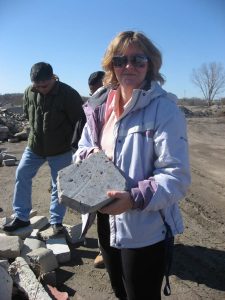
I’m most proud of the impact I had as a faculty member and researcher. I was always very active with undergraduate and graduate students, and my whole career was spent creating, building and managing a major research centre. I was able to build that into a nationally and internationally recognized entity.
I take great pride in the teams that I worked with, and I hope that I brought people together to create something that was better than what we started with.
What inspired your move into administration?
I felt I had a real calling to step into administration, because we need people at the highest levels of the institution who are passionate about teaching and research, and I want to share what I’ve learned. Leaders who care about teaching and research can really have a positive impact on the organization.
What was interesting about coming to McMaster is the university’s research intensity –it’s important to have a provost who knows what it is to do research. Research is still important to me – it’s my fun, actually, and I find it relaxing.
I’m interested in staying in touch with what our faculty and students are doing, because that’s our core business. If people at the highest levels of the institution don’t stay in touch with the core business, then we have a problem.
Did you know anything about Hamilton before you started working at Mac? What’s been the most surprising thing you’ve discovered?
I didn’t appreciate how nice Hamilton is, to be honest – when I thought about Hamilton growing up, I knew about the steel mills, I knew about the large industrial sector and I knew about McMaster, but I didn’t know a lot else about the city.
I’m looking forward to exploring the hiking trails and the waterfalls.
Do you have a favorite spot in the city yet?
I think the McMaster campus is beautiful. I completely understand how much everyone misses being on campus.
How does being an engineer inform your approach to things?
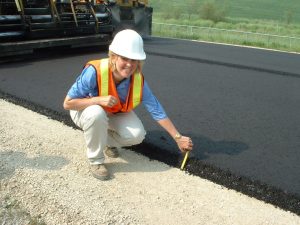
I tend to be data driven – not always, but I use information to help understand what’s being presented to me.
One of my mottos is “Listen first, seek to understand.”
I work best when I can see the big picture, then think about it and try to identify: where’s the bottleneck? Where are the gaps? Where are we going?
What I’ve really come to appreciate when I’m building teams is that diversity and an inclusive environment creates better solutions. At McMaster we have a great opportunity to continue to provide an environment that is inspiring and reflective of today’s society.
Time for the rapid-fire round! Dogs or cats?
Dogs
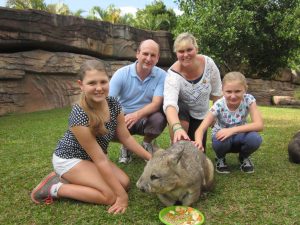
Morning or night person?
Definitely morning.
Chocolate or potato chips?
Chocolate.
Coke or Pepsi?
Neither really, although I like Coke Zero.
Hockey, football, baseball, soccer?
Soccer. And running.
What are you reading right now?
Usually I have two books on the go, and admittedly, I still read a lot related to my research. Right now, I’m reading The Equity Myth [about Indigenous faculty members’ experiences at Canadian Universities] and also The Power of Why, by Amanda Lang, which is about curiosity and innovation.
Your favorite song to get you energized?
Eye of the Tiger by Survivor – the song from Rocky. I run to that one.
Your ideal way to spend a day?
That’s a tough one. I like to be outdoors, doing something active. These days it’s so busy with work – trying to carve out time is a challenge. One of my favourite things to do is watch my two daughters play sports.
What’s your favourite way to wind down at the end of the day?
I’ll take the dog for a walk, then read or watch the news. I have friends all over the world, and I’ve been trying to reach out to at least one of them every weekend.
Any final thoughts?
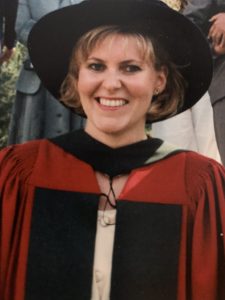
I’m really interested in making McMaster a better place to live and work and study.
I didn’t catapult into administration without spending a lot of time in the system as a researcher and teacher – and I want to ensure I remember all of that in my role.
I don’t just want to sit in University Hall and push paper! I want to make a difference and find ways to do things better.

